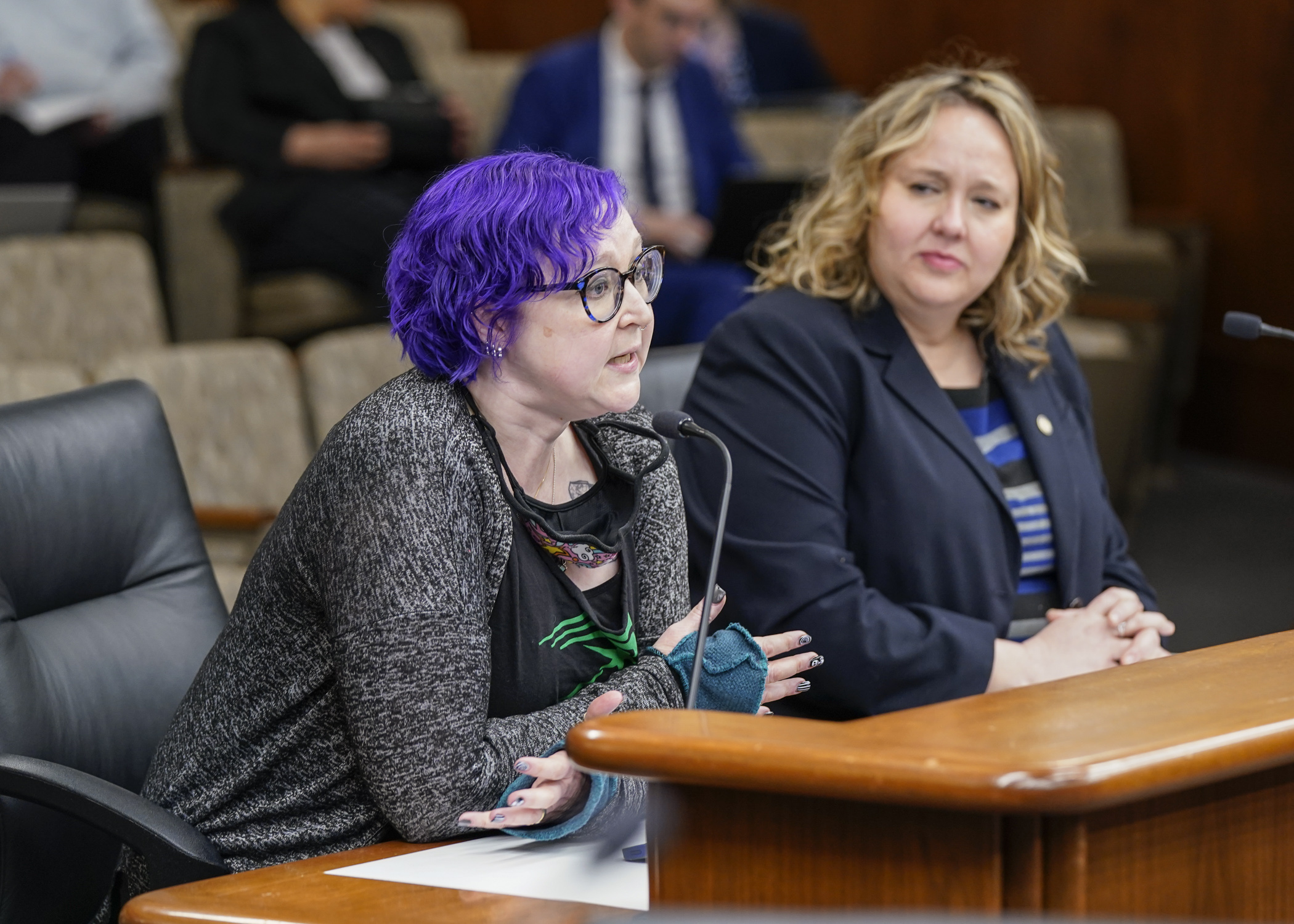House committee votes to extend unemployment benefits to hourly school workers

Say you’re a paraprofessional at an elementary school, or a bus driver for a high school, or a cook on a college campus. Like the teaching staff, you have the summers off. But under current Minnesota law, you’re not eligible to apply for unemployment benefits during the off-season.
HF20 would change that reality, expanding the unemployment insurance system to include these hourly wage workers.
“We know these workers do amazing work, and that they’re often the lowest paid employees on our campuses,” said Rep. Emma Greenman (DFL-Mpls), the bill sponsor. “They feed, they drive, and they clean up after our students. But our current law makes it harder to recruit and retain these employees.”
On Thursday, the House Higher Education Finance and Policy Committee approved the bill, as amended, and sent it to the House Ways and Means Committee.
Hourly wage workers at K-12 schools, public colleges and universities, and tribal colleges could apply for unemployment benefits during the summer months between academic school years. Instructional, research, and principal administrative staff – including those licensed by the Professional Educator Licensing and Standards Board or the Board of School Administrators – would still be excluded.
An appropriation of nearly $140 million is requested for the 2024-25 biennium to reimburse schools for their contributions to the UI fund. The breakdown for the various educational authorities that would manage the money is:
- $135.6 million to the Department of Education;
- $1.6 million to the Minnesota State system of colleges and universities;
- $990,000 to the Office of Higher Education;
- $732,000 to the University of Minnesota;
- $642,000 to the Minnesota State Academies; and
- $50,000 to the Perpich Center for Arts Education.
The Department of Employment and Economic Development would estimate the number of claims for unemployment insurance. If worker demand exceeds departmental expectations, the benefits would be reduced on a pro rata basis. But if worker demand falls short of expectations, the unexpended appropriation would be returned to the General Fund at the end of the biennium.
Mary Falk, a college bookstore coordinator at Anoka Technical College, expects the bill to extend unemployment benefits to college lab assistants, library technicians, food service workers, office administrative specialists, and campus security officers.
Mick Kelly, a cook at the University of Minnesota’s Twin Cities campus, helps serve over 5,000 students a day at Pioneer Hall.
“Last year, Pioneer Hall was part of a national news story because we were unable to feed the students on campus,” he said. “Instead, there were Lunchables here and this there, and the reality was long lines and students weren’t being fed. And part of that was the low wages – it’s hard to get people at low wages – but also it’s not a stable job at this point.”
Rep. Nathan Coulter (DFL-Bloomington) remembers that Pioneer Hall story.
“As we think about that public perception piece of why folks do or do not go to a college or university, as a parent, I would certainly think that ability to feed my kids would rank pretty high up there among things that I’m looking at,” he said.
— Session Daily writer Rob Hubbard contributed to this story.
Related Articles
Search Session Daily
Advanced Search OptionsPriority Dailies
Speaker Emerita Melissa Hortman, husband killed in attack
By HPIS Staff House Speaker Emerita Melissa Hortman (DFL-Brooklyn Park) and her husband, Mark, were fatally shot in their home early Saturday morning.
Gov. Tim Walz announced the news dur...
House Speaker Emerita Melissa Hortman (DFL-Brooklyn Park) and her husband, Mark, were fatally shot in their home early Saturday morning.
Gov. Tim Walz announced the news dur...
Lawmakers deliver budget bills to governor's desk in one-day special session
By Mike Cook About that talk of needing all 21 hours left in a legislative day to complete a special session?
House members were more than up to the challenge Monday. Beginning at 10 a.m...
About that talk of needing all 21 hours left in a legislative day to complete a special session?
House members were more than up to the challenge Monday. Beginning at 10 a.m...